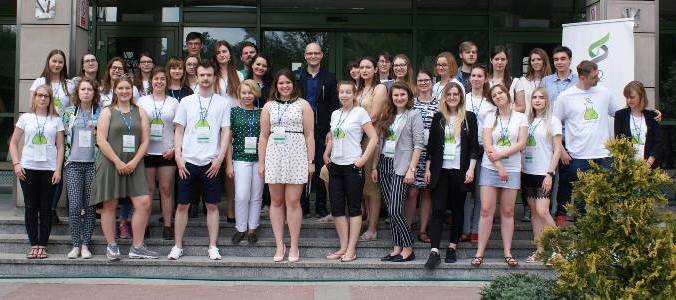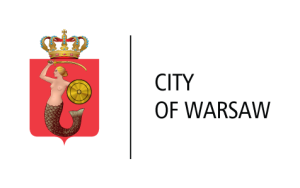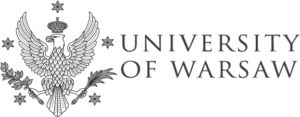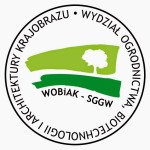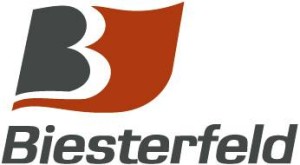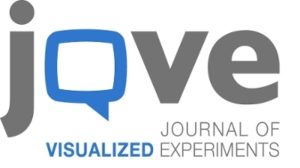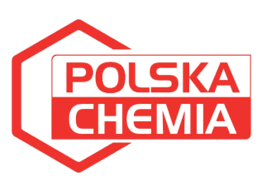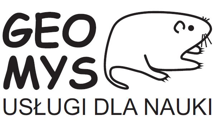Edition 2018
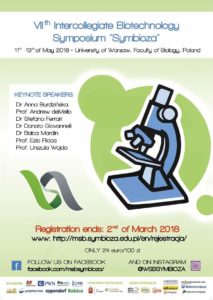 The VIIth edition of Intercollegiate Biotechnology Symposium ,Symbioza” was held between 11th– 13thMay 2018 at University of Warsaw, at the Faculty of Biology.
The VIIth edition of Intercollegiate Biotechnology Symposium ,Symbioza” was held between 11th– 13thMay 2018 at University of Warsaw, at the Faculty of Biology.
VIIth edition was a big stepping stone for the society, it was the first Symposium held fully in English. We gathered 200 bio-enthusiasts who for three days were sharing their experience and knowledge on diverse research in the field of biotechnology and related areas. IBS ’Symbioza’ 2018 attracted 84 active participants who presented their scientific results either by performing in public (22 oral presentations) or taking part in poster sessions (62 posters), among them the conference visited attendees visited us from foreign universities.
This edition was addressed to all young scientists who were interested in expanding their knowledge on various aspects of life science: biotechnology, biology, bioengineering, bioinformatics, chemistry, chemical technology, chemical engineering, medicine, pharmacy, and environmental studies. To enrich the Symposium we hosted great speakers coming from numerous academic backgrounds whose plenary lectures tended to inspire students and broaden their horizons for the future scientific work. Among the special guests were:
Anna Burdzińska
Warsaw Medical University, Poland
Lecture title: Cell based theraphy for urinary incontinence – what can we learn from large animal studies?
» rozwiń więcej informacji
 Dr Anna Burdzińska, a veterinary medical doctor (DVM) is a head of cell culture lab in the Department of Immunology, Transplantation Medicine and Internal Diseases, Medical University of Warsaw.
Dr Anna Burdzińska, a veterinary medical doctor (DVM) is a head of cell culture lab in the Department of Immunology, Transplantation Medicine and Internal Diseases, Medical University of Warsaw.
From the very beginning of her scientific carrier, she has cultured and examined stem cells and progenitor stem cells isolated from adult organisms. She works on methods of cells in vitro modifications for therapeutic purposes in veterinary and medical practice. Dr Burdzinska’s research team has conducted research in vitro and in vivo on animal models in collaboration with Faculty of Veterinary Medicine, Warsaw University of Life Sciences, which dr Burdzinska is a postgraduate student of. She is also attendee of the “Fundamentals Veterinary Science Summer School”, University of Cambridge, UK. Owning financial support from the prize from Foundation for Polish Science she could verify effectiveness of cotransplantation using two cell types in urinary incontinence. Recently, Dr Burdzinska has conducted research in the international project with the main goal to develop a novel scaffold-based tissue engineering approach to heal and regenerate tendons.
» zwiń biografię
Stavros Stavrakis
ETH Zurich, Switzerland
Lecture title: Droplet Microfluidics for Ultra-High-Throughput Biology
» rozwiń więcej informacji
 Stavros is currently a Senior Scientist in the deMello group in the Department of Chemistry and Applied Biosciences at ETH Zurich. He received his B.Sc. in Chemistry and Ph.D in Biophysical Chemistry from the University of Crete (Greece) in 2005. His research was focused on the application of time-resolved vibrational spectroscopies such as FTIR and Raman, applied to enzymatic systems. In 2007 Dr Stavrakis was awarded an Individual Outgoing Marie Curie Fellowship. As a Marie Curie fellow, he spent three years with Prof. Stephen Quake at Stanford University specializing in single molecule biophysics. The focus of his research was to develop new technologies to improve the throughput of current single molecule DNA sequencing platforms. His current research interests are focused on applications of single molecule fluorescence detection and optofluidics in biology. Currently he has a team of postdocs and students developing new microfluidic/ optofluidic platforms for single molecule enzymology, high-throughput imaging flow cytometry, fast enzyme kinetics, fluorescence lifetime combined with droplet microfluidics and high-throughput microfluidic single-cell screening platforms.
Stavros is currently a Senior Scientist in the deMello group in the Department of Chemistry and Applied Biosciences at ETH Zurich. He received his B.Sc. in Chemistry and Ph.D in Biophysical Chemistry from the University of Crete (Greece) in 2005. His research was focused on the application of time-resolved vibrational spectroscopies such as FTIR and Raman, applied to enzymatic systems. In 2007 Dr Stavrakis was awarded an Individual Outgoing Marie Curie Fellowship. As a Marie Curie fellow, he spent three years with Prof. Stephen Quake at Stanford University specializing in single molecule biophysics. The focus of his research was to develop new technologies to improve the throughput of current single molecule DNA sequencing platforms. His current research interests are focused on applications of single molecule fluorescence detection and optofluidics in biology. Currently he has a team of postdocs and students developing new microfluidic/ optofluidic platforms for single molecule enzymology, high-throughput imaging flow cytometry, fast enzyme kinetics, fluorescence lifetime combined with droplet microfluidics and high-throughput microfluidic single-cell screening platforms.
» zwiń biografię
Stefano Ferrari
Institute of Molecular Cancer Research, University of Zurich, Switzerland
Lecture title: DNA damage and the control of cell cycle transitions
» rozwiń więcej informacji
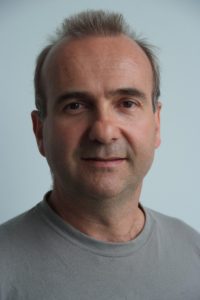 Dr Stefano Ferrari is a group leader at the Institute of Molecular Cancer, University of Zurich. His research is focused on the cellular response to DNA damage (DDR), with the main aim being to gain a deeper understanding of checkpoint control pathways triggered by DNA damage.
Dr Stefano Ferrari is a group leader at the Institute of Molecular Cancer, University of Zurich. His research is focused on the cellular response to DNA damage (DDR), with the main aim being to gain a deeper understanding of checkpoint control pathways triggered by DNA damage.
Dr Ferrari’s group, beyond basic research on mechanisms controlling DNA double-strand break repair, the stability of stalled replication forks and signaling pathways delaying cell cycle transitions in response to damage, investigates the role of CDC25 inhibitors and photo-activatable metal-based complexes in Cancer therapy.
All in all, his aim is to provide a proof-of-principle for the design of therapeutic protocols based on the combination of conventional radio- or chemotherapy and checkpoint inactivating drugs.
» zwiń biografię
Donato Giovannelli
Tokyo Institute of Technology, Rutgers University, National Research Council of Italy
Lecture title: Reconstructing the emergencje and evolution of metabolizm: ancestral and acquired metabolic pathways in extant genomes
» rozwiń więcej informacji
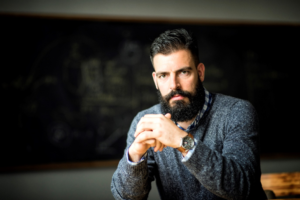 Dr Donato Giovannelli is a Microbial Ecologist working on the microbiology of extreme environments. He currently holds an appointment as a joint EON Research Fellow at the Earth-Life Science Institute, Japan and Rutgers University, USA, he is a Visiting Scholar at the Institute of Advanced Studies in Princeton, USA, and an Adjunct Researcher at the National Research Council of Italy.
Dr Donato Giovannelli is a Microbial Ecologist working on the microbiology of extreme environments. He currently holds an appointment as a joint EON Research Fellow at the Earth-Life Science Institute, Japan and Rutgers University, USA, he is a Visiting Scholar at the Institute of Advanced Studies in Princeton, USA, and an Adjunct Researcher at the National Research Council of Italy.
Dr Giovannelli is fundamentally interested in the co-evolution of the biosphere and the geosphere and how life influences planetary-scale processes. His current research focuses on two major themes, integrally linked to each other:
1) the microbial diversity and ecosystem functioning of extreme environments and their role in global biogeochemistry;
2) reconstructing the emergence and evolution of metabolism.
In his work, Dr Giovannelli combines classic microbiology techniques with data from comparative genomic, phylogenetic, and environmental surveys and computational approaches to reconstruct geo-bio interactions. He is also part of a new no-profit institute dedicated to exploring the origins and nature of awareness, YHouse. Dr Giovannelli is also the co-founder of a nanotechnology company, Nano-Tech S.p.A, where he is still involved as member of the Board of Directors and he recently founded a biotech startup, Cypress Biotechnology.
» zwiń biografię
Balca Madrin
Biomed X Heidelberg, Germany
Lecture title: From DNA replication to repair: Novel strategies for studying DNA breaks
» rozwiń więcej informacji
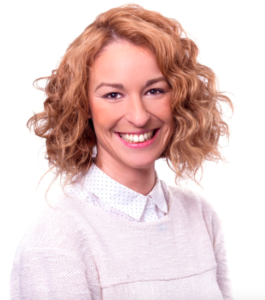 Doctor Balca R. Mardin performed her bachelor studies in Istanbul Technical University, Turkey, in Molecular Biology and Genetics department. Afterwards, she moved to Heidelberg, Germany, to finish her M.Sc and Ph.D studies in Heidelberg University, studying molecular mechanisms of cell division.
Doctor Balca R. Mardin performed her bachelor studies in Istanbul Technical University, Turkey, in Molecular Biology and Genetics department. Afterwards, she moved to Heidelberg, Germany, to finish her M.Sc and Ph.D studies in Heidelberg University, studying molecular mechanisms of cell division.
Dr. Mardin joined EMBL in September 2012 as a Marie Curie postdoctoral fellow in the group of Dr. Jan O. Korbel. She worked on understanding complex genomic rearrangements in tumor evolution using experimental and computational approaches. Since November 2016 she is a team leader at Biomed X Innovation Center in Heidelberg, using an exciting new collaboration model at the interface between academia and industry. Her group investigates synthetic lethality mechanisms of DNA repair in human cells using cancer genomics, genetic screening approaches and pre-clinical studies. Her research projects that are sponsored by Merck GmbH, aims to extend the list of anti-cancer drugs that target genotypic alterations commonly seen in human tumors.
» zwiń biografię
Ezio Ricca
University of Naples, Italy
Lecture title: Bacterial Spore Formers: Microbiology and Biotechnology
» rozwiń więcej informacji
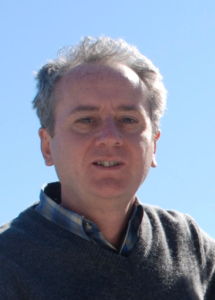 Professor Ezio Ricca is Head of the Department of Biology of the Federico II University of Naples in Italy.
Professor Ezio Ricca is Head of the Department of Biology of the Federico II University of Naples in Italy.
His research interests focus mainly on bacterial spore formers, on the spore surface structures and on the use of spores as biotechnological tools. With his research team Professor Ricca developed the use of spores as a mucosal delivery system and as a probiotic agent. More recently, the team became also interested in investigation of the interactions of commensal bacteria with intestinal cells, and in the effects of these bacteria and of the diet on the composition of the gut microbiota. Ezio Ricca is in the Editorial board of FEMS Microbiol Lett and of Microbial Cell Factories and is in the Organizing Committee of the “European Spores Conference”.
» zwiń biografię
Urszula Wojda
Nencki Intitute of Experimental Biology Polish Academy of Science, Poland
Lecture title: Alzheimer’s disease: on the way to novel diagnostics and therapies
» rozwiń więcej informacji
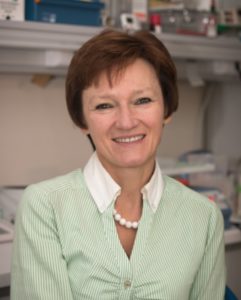 Professor Urszula Wojda is the Head of the Laboratory of Preclinical Research of Higher Standard at the Center for Neurobiology at the Nencki Institute in Warsaw, a core facility with its own research programme focused on the preclinical verification of new potential diagnostic and therapeutic strategies in cellular and animal models for combating diseases of the nervous system.
Professor Urszula Wojda is the Head of the Laboratory of Preclinical Research of Higher Standard at the Center for Neurobiology at the Nencki Institute in Warsaw, a core facility with its own research programme focused on the preclinical verification of new potential diagnostic and therapeutic strategies in cellular and animal models for combating diseases of the nervous system.
The laboratory was established in 2014 at the eminently modern Center for Neurobiology at the Nencki Institute and is the only such specialized facility in Poland. Professor Wojda contributed to the Polish Ministry of Science and Higher Education activity as a member of the Biomedical Committee (2008-2010) and since 2013 she has been working as an expert on combating Neurodegenerative Diseases, and as a Management Board member of the EU Joint Programming for Neurodegenerative Diseases (JPND). Furthermore, professor Urszula Wojda is a member of the Management Board of the Polish Biochemical Society and a leader of several successful R&D project teams. She provided expertise in R&D project management which consequently made her a coordinator of 8 national and 5 international grants.
» zwiń biografię
Programme
Student presentations
» More
» Less
Poster sessions
» More
» Less
Integration events
Similarly to the previous editions, Warsaw Society of Biotechnology took care of social events which idea was to create the new bonds between young scientists and explore the capital of Poland. All participants were able to join Urban Filed Game and the Conference Party.
Organizers
Julia Mastalerz – head
Klaudia Jurczak – vice-head and PR
Daniel Bajerski – finance
Małgorzata Wydrych – scientific issues
Aleksandra Izdebska – logistics
| Marta Abramczuk | Jan Długosz | Agnieszka Kołodziejczyk | Małgorzata Stachowiak |
| Aleksandra Aksamit | Jakub Dominowski | Piotr Krupiński | Grzegorz Suwała |
| Alicja Armatowska | Joanna Durka | Mikołaj Kuska | Julia Sygocka |
| Joanna Baran | Zuzanna Frydzińska | Aleksandra Kutkowska | Patrycja Ściślewska |
| Mirosław Barłowski | Michał Gąsior | Konrad Łosiński | Monika Tabor |
| Marta Benicka | Marta Górska | Karolina Marczak | Martyna Trojgo |
| Joanna Boresowicz | Monika Gromek | Daniel Markiewicz | Kamil Trzebuniak |
| Paulina Brodacka | Miłosz Grudzień | Zuzanna Nizka | Marta Wiatrowska |
| Urszula Budniak | Jowita Grzędzicka | Norbert Osiński | Małgorzata Widomska |
| Emilia Cepowska | Joanna Idzik | Agnieszka Paziewska | Katarzyna Włodarska |
| Izabela Cieplicka | Iga Jancewicz | Rafał Podgórski | Aleksandra Wójcik |
| Aleksandra Ćwiek | Aneta Karpińska | Jacek Rymuszka | Karolina Zajdel |
| Joanna Dembska | Kinga Kierzkowska | Anna Sobiepanek | Karolina Ziąbska |
